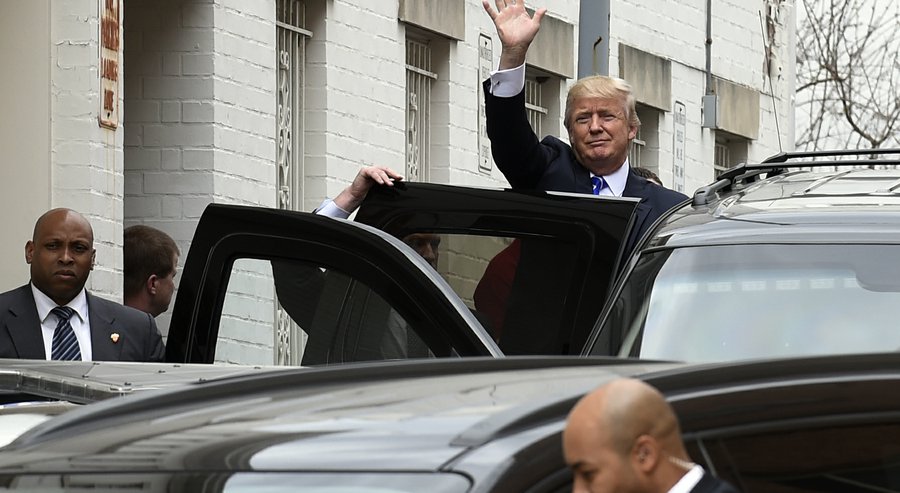Federal appeals court blocks Alabama anti-abortion law

The 11th Circuit U.S. Court of Appeals in Atlanta blocked Alabama anti-abortion legislation on Wednesday, that would have outlawed a commonly used second-trimester dismemberment abortion procedure. The legislation, SB363: the Unborn Child Protection from Dismemberment Abortion Act, originally passed in 2016 and called for a ban on dilation and evacuation abortions; during which the fetus is removed in pieces with forceps. This type of procedure accounts for approximately 95 percent of all abortions in the second trimester. The legislation also allowed an exception in the event of a “serious health risk to the mother.” Executive director of the American Civil Liberties Union of Alabama, Randall Marshall told the Associated Press that the ruling means “Alabama politicians can’t put an “ideological agenda” over a woman’s health and decision-making.” “I am disappointed that the 11th Circuit sided with the lower court in this case, but it is encouraging that the court recognized the State’s important and legitimate interests in ending barbaric abortion procedures—in this case, procedures that literally tear apart babies living inside their mothers’ wombs,” Attorney General Steve Marshall said in a statement. “Our legal team is carefully considering whether we will petition the Supreme Court for review of this case. We expect to reach a decision soon.” In June of 2016 the ACLU filed a lawsuit against the restrictions, saying they would dramatically cut abortion access and close the state’s two busiest clinics — the West Alabama Women’s Clinic in Tuscaloosa and the Alabama Women’s Center in Huntsville. According to the Alabama Department of Public Health, the clinics in Huntsville and Tuscaloosa performed 72 percent of the 8,080 abortions in Alabama in 2014. Scheduled to take effect on Aug. 1 of 2016, U.S. District Judge Myron Thompson temporarily blocked the enforcement of the new law in July of that year.
Donald Trump’s abortion flub shows risks of ‘winging it’ on policy

It was a question sure to come up at some point in the Republican primary campaign. “What should the law be on abortion?” asked MSNBC’s Chris Matthews to Donald Trump at a town hall event in Wisconsin. “Should the woman be punished for having an abortion?” Matthews pressed. “This is not something you can dodge.” Trump’s bungled response — an awkward, extended attempt to evade the question, followed by an answer that, yes, “there has to be some form of punishment” — prompted a backlash that managed to unite abortion rights activists and opponents. And it also brought an unprecedented reversal from the notoriously unapologetic candidate less than a week before Wisconsin’s important primary. The episode demonstrated the extent to which Trump has glossed over the rigorous policy preparation that is fundamental to most presidential campaigns, underscoring the risks of the billionaire businessman’s winging-it approach as he inches closer to the Republican nomination. “Well, bear in mind I don’t believe that he was warned that that question was coming” and didn’t have a chance to really think about it, said Ben Carson, a former Trump rival who has since endorsed him, in an interview with CNN. He should have, said political professionals. “When you’re just winging it, that’s what happens,” said Kevin Madden, a veteran of 2012 nominee Mitt Romney‘s campaign. “Running for president, it’s not a take-home exam.” And this wasn’t the first time Trump’s approach has gotten him in trouble. He raised eyebrows during a debate when he appeared unfamiliar with the concept of the nuclear triad, an oversight his opponents happily pointed out. At a town hall on CNN earlier this week, Trump appeared to falter when asked to name what he believed were the top three priorities of the federal government. Among his answers: health care and education. Trump has vowed to repeal President Barack Obama‘s landmark health care law and gut the budget of the Department of Education. The lack of preparation extends beyond policy. This week, Trump called into a series of radio stations in Wisconsin, apparently unaware the interviews were likely to be combative. At the end of a remarkable interview in which he compared Trump’s behavior to that of “a 12-year-old bully on the playground,” WTMJ-AM’s Charlie Sykes asked Trump if he was aware he’d called into someone unabashedly opposed to his candidacy. “That I didn’t know,” Trump said. During a recent rally in Vienna, Ohio, Trump delivered his usual indictment of the North American Free Trade Agreement and blasted American companies that have shipped jobs overseas. But he seemed unaware that Chevrolet, which builds the Chevy Cruze sedan in nearby Lordstown, had recently announced that it was planning to build its 2017 hatchback model in Mexico. It was the kind of local knowledge that requires research and legwork, and could have helped Trump connect with his audience and others in the state. For most presidential candidates, especially those new to it all, getting up to speed on the intricacies of domestic and foreign policy is a process that begins early. While Trump’s campaign did not respond Thursday to questions about the kind of briefings he receives, it’s clear he has done things differently. Who does he consult on foreign policy? “I’m speaking with myself, number one, because I have a very good brain and I’ve said a lot of things,” Trump said on MSNBC this month. He’s also said he gets information about international affairs from “the shows” and newspapers. He announced members of his foreign policy team only this month and met with them Thursday as part of a series of appointments in Washington. Out on the trail, Trump largely skipped town hall events in the early-voting states that were the hallmarks of several rival campaigns. Chris Christie and John Kasich, for example, held dozens of the events, fielding hundreds of questions on every topic imaginable. Trump might well note that most of his GOP rivals are gone, and he’s still the front-runner. But what about his abortion comments? “None of the other candidates would have made that mistake,” said Marjorie Dannenfelser, president of the Susan B. Anthony List, which supports anti-abortion legislation and candidates. Michael Steel, an adviser to former Trump rival Jeb Bush, said that candidates and presidents have to be able to respond to issues as they arise, which requires a “tremendous amount” of work behind the scenes. It’s one reason major candidates from both parties typically have government experience. “I think we’ve seen in a variety of venues including the debates that he doesn’t seem to have the knowledge and background on important policy issues that you would expect from a presidential candidate,” Steel said. Bush spent the months after he announced his candidacy last summer developing a comprehensive domestic and foreign policy platform. Campaign employees assisted by more than 100 outside advisers briefed him in frequent sessions, said Justin Muzinich, the campaign’s policy director. “He took policy extraordinarily seriously,” Muzinich said. Dannenfelser, the abortion opponent, said there is still time for Trump. “The question is, will he be able to get to the point of confidently communicating his position to contrast with Hillary Clinton in a way that helps?” she said. “I think it’s possible.” Republished with permission of the Associated Press.


